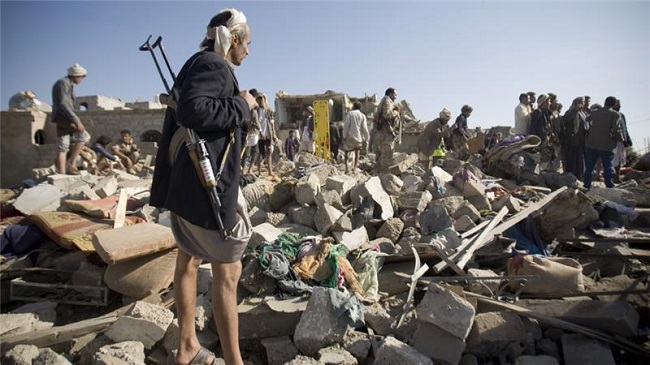By Abdulrahman Al-Rashed
Nearly two decades ago, a small group hailing from northern Yemen established relations with Iran, encouraged by the then President Ali Abdullah Saleh, as a part of a game of balance. The move was justified on the pretext of spreading classes that promote the ideology of the competing religious schools of thought in Salafi and other areas.
Some years later, the Iranians managed to transform that group into an affiliated agent that is politically allied to them. Then, Saleh himself, who helped them establish links with religious groups in Iran, began to suffer at their hands and even got engaged in five wars with them in response to attacks against his troops and their calls to revive the Imamate.
In 2011, Saleh was deposed following a wave of protests, which was part of the so-called Arab Spring, and as a result of a serious injury that he had sustained in an assassination attempt, bringing his 40-year rule to an end. Later on, Saleh allied with his old foes, the Houthis, and the new allies managed to seize power. Now, they control almost half of the Yemeni territory. This is the summary of the Houthi story, which constitutes a part of the Yemeni war equation and stirs key questions in the course of the serious negotiations aiming to find a solution to the war there.
Perhaps the most important question that should be posed here is the one about the future of Houthis, because they are a dangerous faction that plays for Iran in a big regional game in which Iran is using agents in Iraq, Syria, Lebanon, Bahrain and Palestine. In reality, the Houthis looks to be a strong military group that expanded south as far as Eden, 800 kilometers away from their stronghold in Saada. The first thing they did after staging the coup was seizing the Yemeni army weapons’ depots and transporting the weapons into their territory.
Obviously, the Iranians have been preparing them to achieve such dominance on the ground. Reports affirm that Hezbollah has trained around 3,000 Houthi fighters following the latter’s war with Saudi Arabia in 2009. The Lebanese party also launched TV stations and websites to back the Houthis, and even assisted them to administer their domestic areas. The Iranians are currently making arrangements to give the Houthis a more powerful status in Yemen similar to that of the Hezbollah in Lebanon, that is, an allied military force that is controlled by Tehran. In other words, the Houthis represents Iran’s projected enclave inside Yemen and southern Saudi Arabia, just like Hezbollah, which has control over Lebanon while it is exploited by Iran against Israel for political gains. This picture has now become clear and is accepted by many people, even those who were skeptical of it at the beginning of the Yemen war, just like when reports about Iran’s military presence in Syria were questioned until Tehran officially admitted its role.
However, I think the Houthis are a failed project, and cannot replicate Hezbollah’s Lebanese experience for several reasons. Though Iran has done all it takes for a successful model like giving the Houthi militias a similar name to the Hezbollah, that is, “Ansarallah;” making them raise similar slogans like “Death to Israel.
Death to the US;” teaching its religious curricula in Houthi schools; training them and picking their military leaders, providing them with arms and creating propaganda media for the Houthis it will not be able to create an effective enclave because Yemen in not Lebanon, as there is a great difference.
The Houthis are a minority in a large residential community. During the coming years, whether war continued or peace prevailed, it will not be easy for them to impose themselves as a dominant force. They make up only five percent of the overall Yemeni population and are concentrating in Saada, which is far from the center of the country. These factors will make their mission to play a pivotal and dominant role in a country with a rugged terrain a near impossibility, unless they take full control of the country under favorable conditions.
In addition, the Houthis are a small sect that is separated from the consensus of Zaidi, the main doctrine in Yemen. Another difference between the situation of Houthis and that of the Hezbollah is that the latter gained influence thanks to marketing itself as the resistance force against the Israeli occupation; but in the Yemeni case, we will find that Saudi Arabia has been the biggest supporter of Yemen since it was a kingdom.
Millions of Yemenis cannot see an alternative neighbor or market to Saudi Arabia. For all of these reasons, the Houhis case is different from Hezbollah’s. I can assure that stability in Yemen will weaken their role, because they derive their strength from the ongoing war. So, when full collaboration with Yemini political and religious leaders is reached, the Houthis’ presence will diminish.
‘Courtesy Arab News’.


